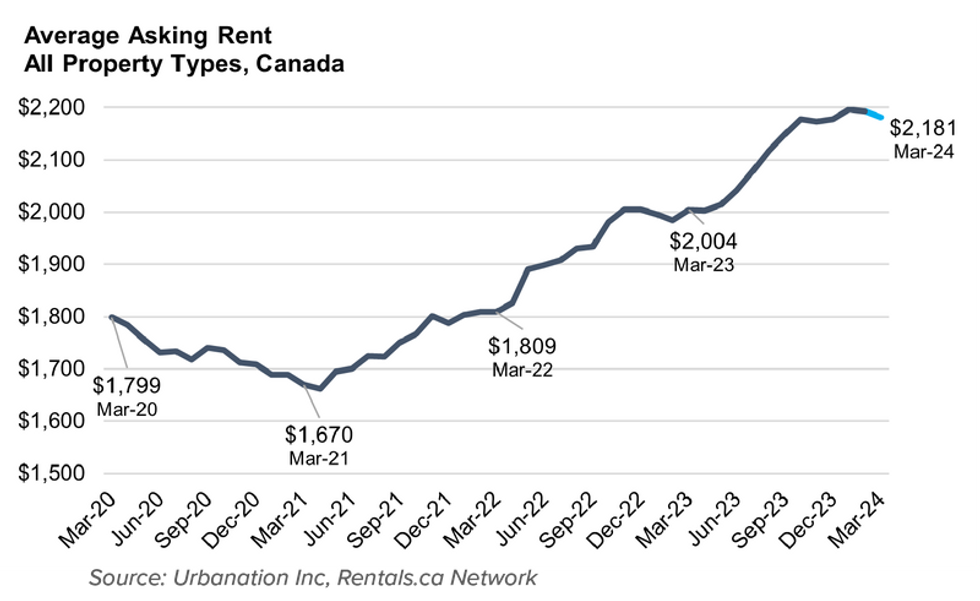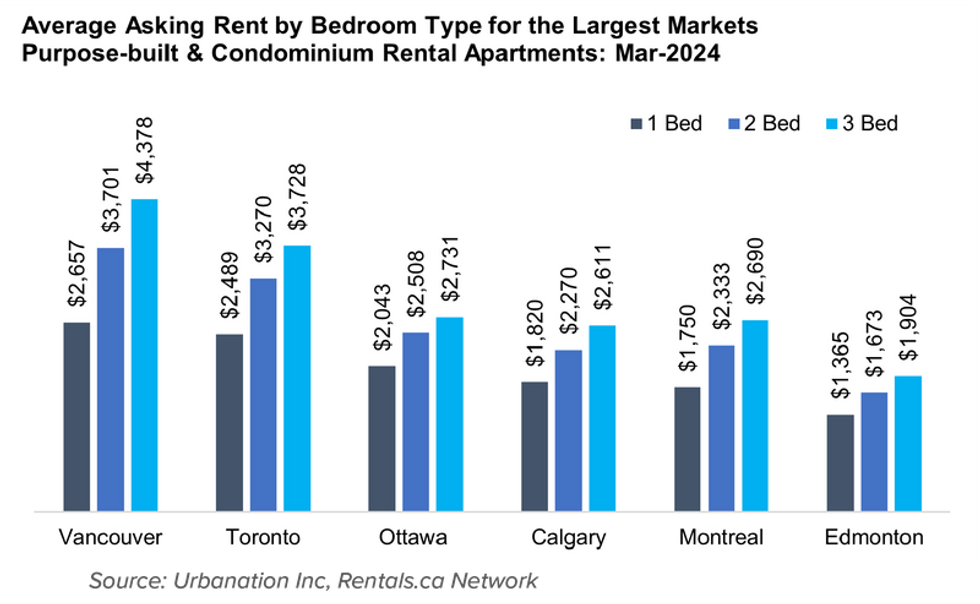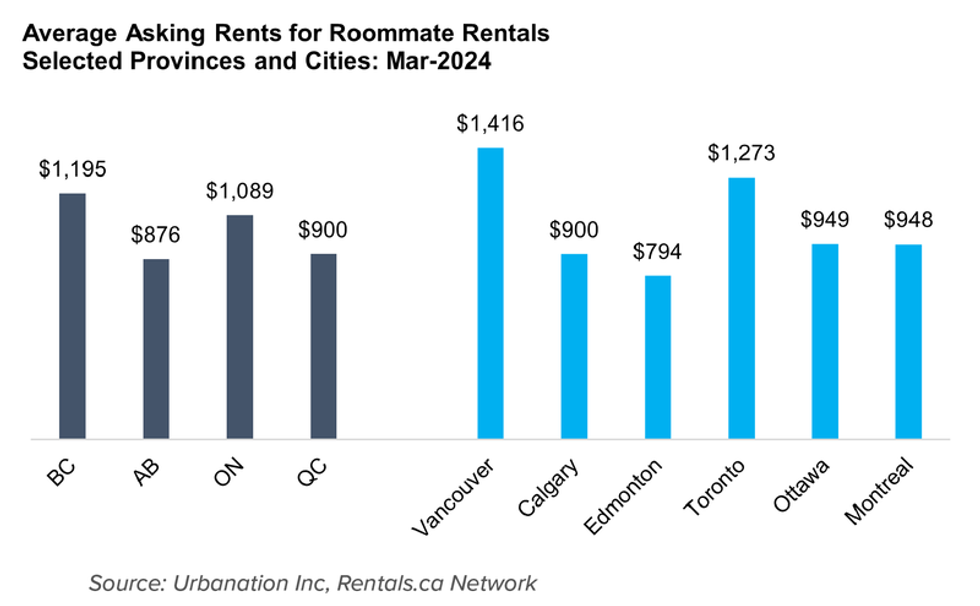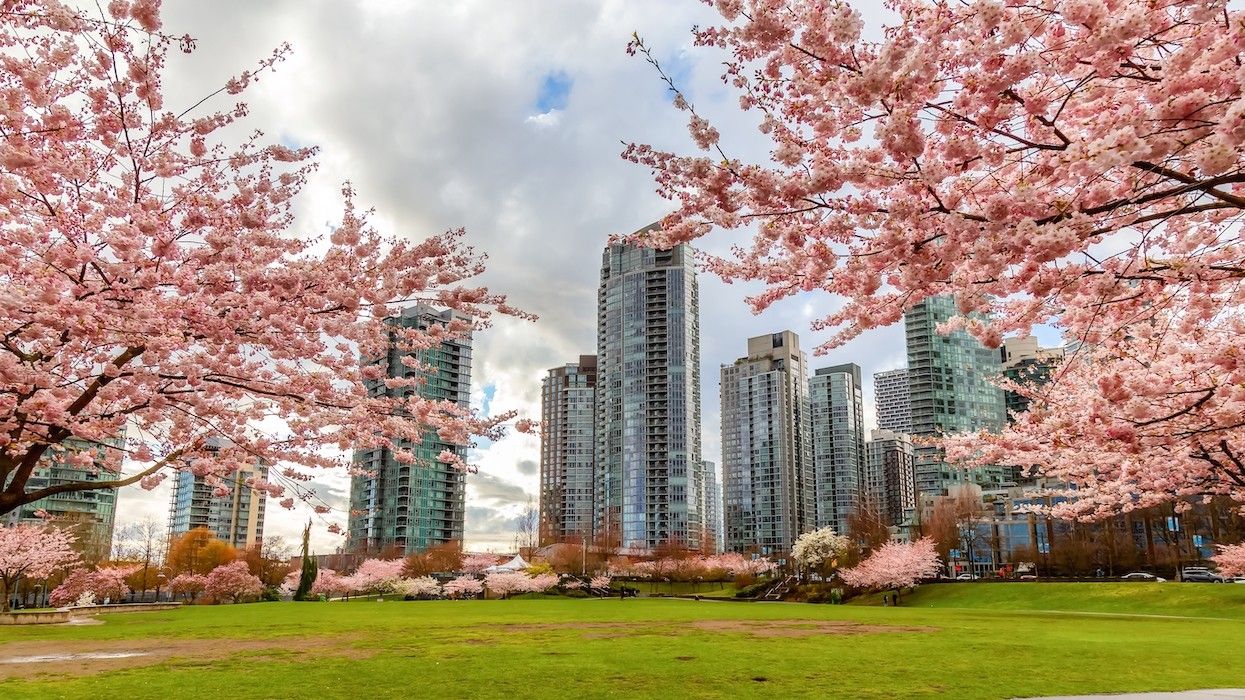After months of steady appreciation, average Canadian rent prices pulled back a bit in March, with slower activity in two of the country’s largest rental markets largely to blame for the overall national decline.
According to a just-released report from Rentals.ca and Urbanation, average asking for all residential property types in Canada clocked in at $2,181 last month, marking a 8.8% rise year over year. “The annual rate of rent growth slowed somewhat from the 10.5% annual growth recorded in February, as rents experienced a 0.6% month-over-month decrease in March,” the report says.
As for why this kind of slower rent growth is now transpiring: the report notes that “the flattening in rents in recent months can be partly attributable to seasonal factors.” On top of that, Urbanation President Shaun Hildebrand explains that the national average was “weighed down by recent declines in key markets in Vancouver and Toronto.”
“As population growth slows with caps on non-permanent residents and supply increases as rental completions continue to rise, rent growth should continue to moderate towards more sustainable levels,” Hildebrand adds.

Breaking down the national data further reveals that rents for purpose-built rental apartments edged up 0.3% month-over-month and 12.7% year over year to $2,117, while rents for condominium apartments grew by 2.2% monthly and 3.9% annually to $2,321. As for what drove up that latter price tag, the report says that condominium completions rose to “record high levels” in Toronto.
In addition, the report highlights that “the highest annual growth in rents for purpose-built rental apartments was for the smallest and least expensive unit types,” with rents for studio units seeing a 14.9% year-over-year uptick to $1,564, while one-bedrooms ended the month 13.6% higher to $1,926.
“Conversely, rents for studio condos declined 0.8% annually to an average of $1,852 and one-bedroom condo rents increased by a modest 3.0% to an average of $2,110,” the report adds. “Larger units represented by three-bedroom apartments, often occupied by roommates, experienced similar annual growth in rents of 10.3% for purpose-built apartments and 7.8% for condo apartments.”

Friday’s report also hones in on Canadian municipalities and reveals, as mentioned, that rents are on a downtrend in both Vancouver and Toronto.
In Vancouver, the average asking slipped 4.9% in March to $2,993, marking the fourth straight month in which this metric declined. Still, rents in Vancouver remain among the steepest in the country. Meanwhile, in Toronto, average rent fell 0.7% month over month and 1.3% year over year to $2,782 in March, “representing the third consecutive month of annual rent declines.”
By comparison, Calgary observed a 9.8% rent bump year over year, as well as a 0.8% increase month over month, bringing March’s average to a four-month high of $2,076.

On the roommate rent front: rents for shared accommodations “continued to escalate in March,” Friday’s report says, with the national average clocking in above $1,000 for the fourth straight month.
“Roommate rents were highest in BC, reaching a record-high average of $1,195. In Ontario, rents for shared units averaged $1,089, while Quebec and Alberta had average asking rents of $900 and $876, respectively,” says the report, later adding that “the most expensive of Canada's largest cities had the highest asking roommate rents, averaging $1,416 in Vancouver and $1,273 in Toronto.”





















